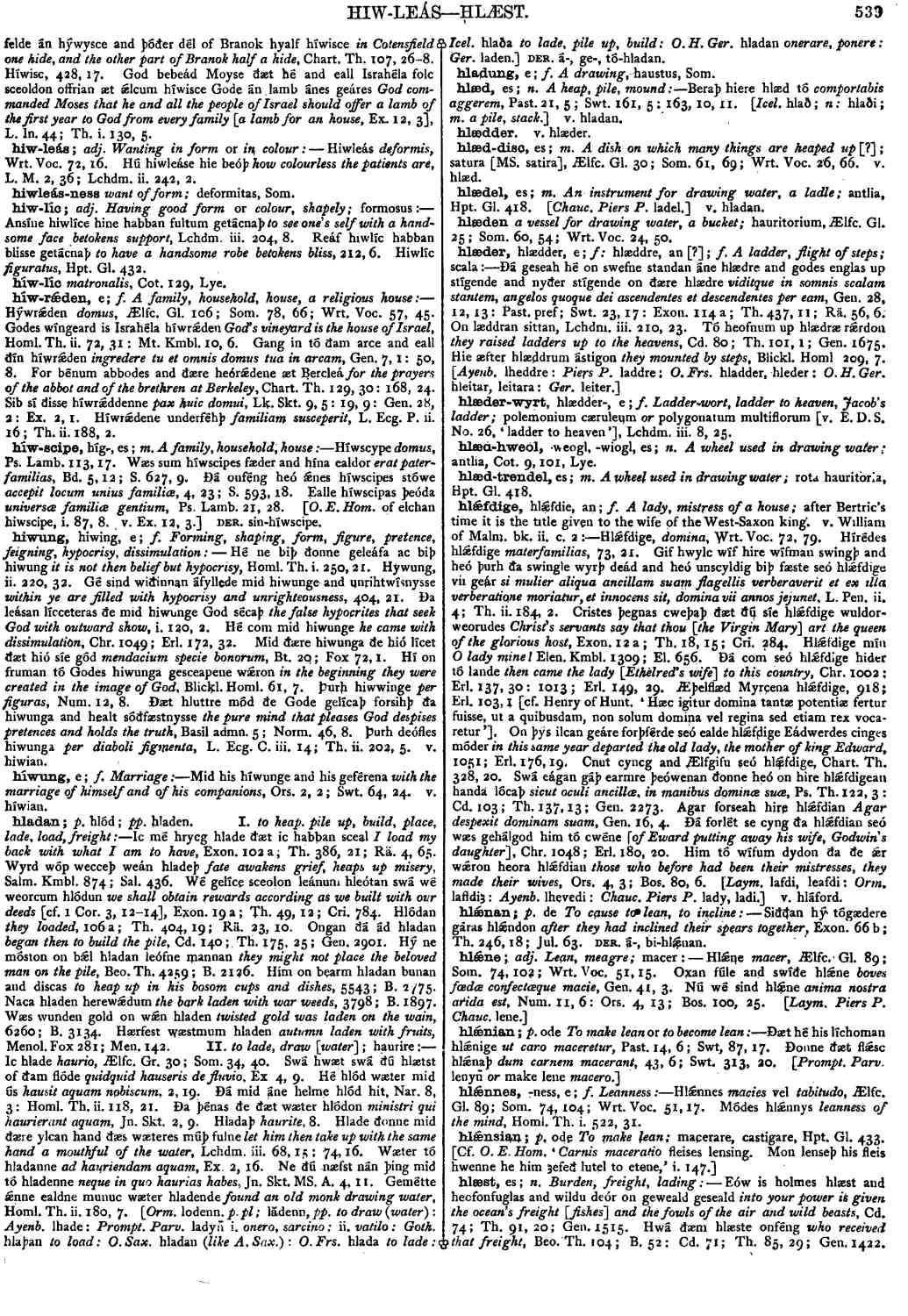hlǽfdige
- noun [ feminine ]
-
Hlǽfdige,
domina,
- Wrt. Voc. 72, 79.
-
Hírédes hlǽfdige
materfamilias,
- 73, 21.
-
Gif hwylc wíf hire wífman swingþ and heó þurh ða swingle wyrþ dead and heó unscyldig biþ fæste seó hlǽfdige vii geár
si mulier aliqua ancillam suam flagellis verberaverit et ex illa verberatione moriatur, et innocens sit, domina vii annos jejunet,
- L. Pen. ii. 4; Th. ii. 184, 2.
-
Cristes þegnas cweþaþ ðæt ðú síe hlǽfdige wuldorweorudes
Christ's servants say that thou [the Virgin Mary] art the queen of the glorious host, Exon. 12 a;
- Th. 18, 15; Cri. 284.
-
Hlǽfdige mín
O lady mine!
- Elen. Kmbl. 1309; El. 656.
-
Ðá com seó hlǽfdige hider tó lande
then came the lady [Ethelred's wife] to this country,
- Chr. 1002; Erl. 137, 30: 1013; Erl. 149, 29.
-
Æþelflæd Myrcena hlǽfdige,
- 918; Erl. 103, 1 [cf. Henry of Hunt. '
in this same year departed the old lady, the mother of king Edward,
- 1051; Erl. 176, 19.
-
Cnut cyncg and Ælfgifu seó hlǽfdige,
- Chart. Th. 328, 20.
-
Swá eágan gáþ earmre þeówenan ðonne heó on hire hlǽfdigean handá lócaþ
sicut oculi ancillæ, in manibus dominæ suæ,
- Ps. Th. 122, 3: Cd. 103; Th. 137, 13; Gen. 2273.
-
Agar forseah hirp hlǽfdian
Agar despexit dominam suam,
- Gen. 16, 4.
-
Ðá forlét se cyng ða hlǽfdian seó wæs gehálgod him tó cwéne [
of Eward putting away his wife, Godwin's daughter
], Chr. 1048; Erl. 180, 20. -
Him tó wífum dydon ða ðe ǽr wǽron heora hlǽfdian
those who before had been their mistresses, they made their wives,
- Ors. 4, 3; Bos. 80, 6.
Bosworth, Joseph. “hlǽfdige.” In An Anglo-Saxon Dictionary Online, edited by Thomas Northcote Toller, Christ Sean, and Ondřej Tichy. Prague: Faculty of Arts, Charles University, 2014. https://bosworthtoller.com/19161.
Checked: 0